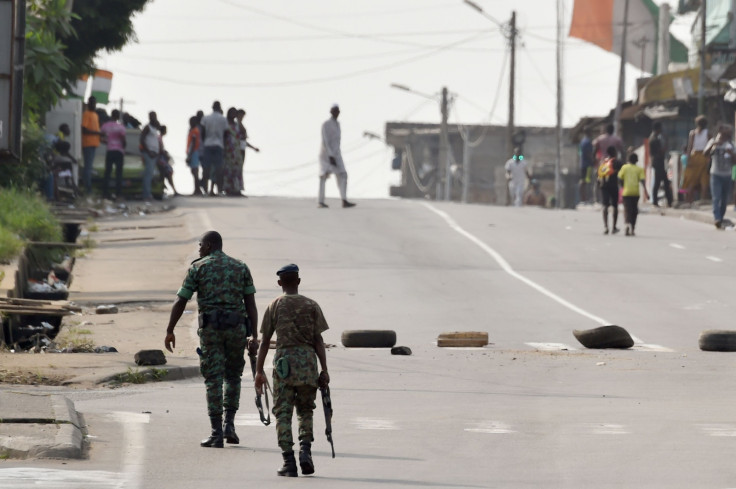President Alassane Ouattara says Ivory Coast 'back to normal' after army mutiny
Soldiers fired guns and staged two-day mutiny demanding higher salaries and improved living conditions.

In Ivory Coast, President Alassane Ouattara has reassured Ivorians that "all is now back to normal" after a wave of army mutiny over pay spread into several cities on the weekend.
On 6 January, mutineers seized weapons from two police stations and fired rocket launchers in the country's second city, Bouaké, 350km north of the capital Abidjan, before the unrest spread to the western towns of Daloa, Duékoué and Man, and to Korhogo, in the north of the country.
The mutiny spread to the commercial capital, Abidjan, where soldiers took over the army headquarters, and briefly detained the country's defence minister Alain Richard Donwahi.
Mutineers demanded to be paid financial settlements − so called "ecomog" − packages that they claim the government agreed with them as part of a deal to end the country's civil war, but were never delivered.
By 9 January, the anger of the military seems to have subsided, after Ouattara he had taken into account the soldiers' pay demands, and agreed to satisfy their calls including an improvement to their living conditions. The President tweeted:
After the regrettable events of the past few days all is now back to normal. I invite everyone to carry on with their usual activities pic.twitter.com/rNljJEKRLU
— Alassane D. Ouattara (@adosolutions) January 8, 2017
Ouattara said he had taken into account the soldiers' pay demands and calls to improve their living conditions and urged them to return to the barracks. Following his calls, calm descended in the capital, Bouaké, Duékoué and Man after the head of state urged the soldiers to return to their barracks. Roads blocks have been lifted.
The mutineers' grievances date back to ''unkept promises from the government'' after a similar pay revolt in 2014. Political actors in Ivory Coast said they worried about the repetition effect, and questioned the financing of the promises made to the mutineers.
"We expect the authorities to have the courage to settle this situation once and for all, because it has already done twice. In 2014 (and) in 2017, we are still facing this," Jean Bonin Kouadio of the Front Populaire Ivoirien (FPI) party told RFI.
"The mutineers are demanding a war booty that had been promised during the attack of the Republican forces of Cote d'Ivoire and today the government is committed to paying these enormous sums. It is not known from which fund they will have to draw the hundreds of billions promised."
On 9 January, Ouattara met with Prime Minister Daniel Kablan Duncan, with whom he was expected to discuss the two-day mutiny and the country's future government. Following the high-level discussions, Kablan Duncan resigned and Ouattara is now expected to form a new government following the legislative elections held in December.
Kablan Duncan is poised to be appointed first vice-president.
© Copyright IBTimes 2025. All rights reserved.





















